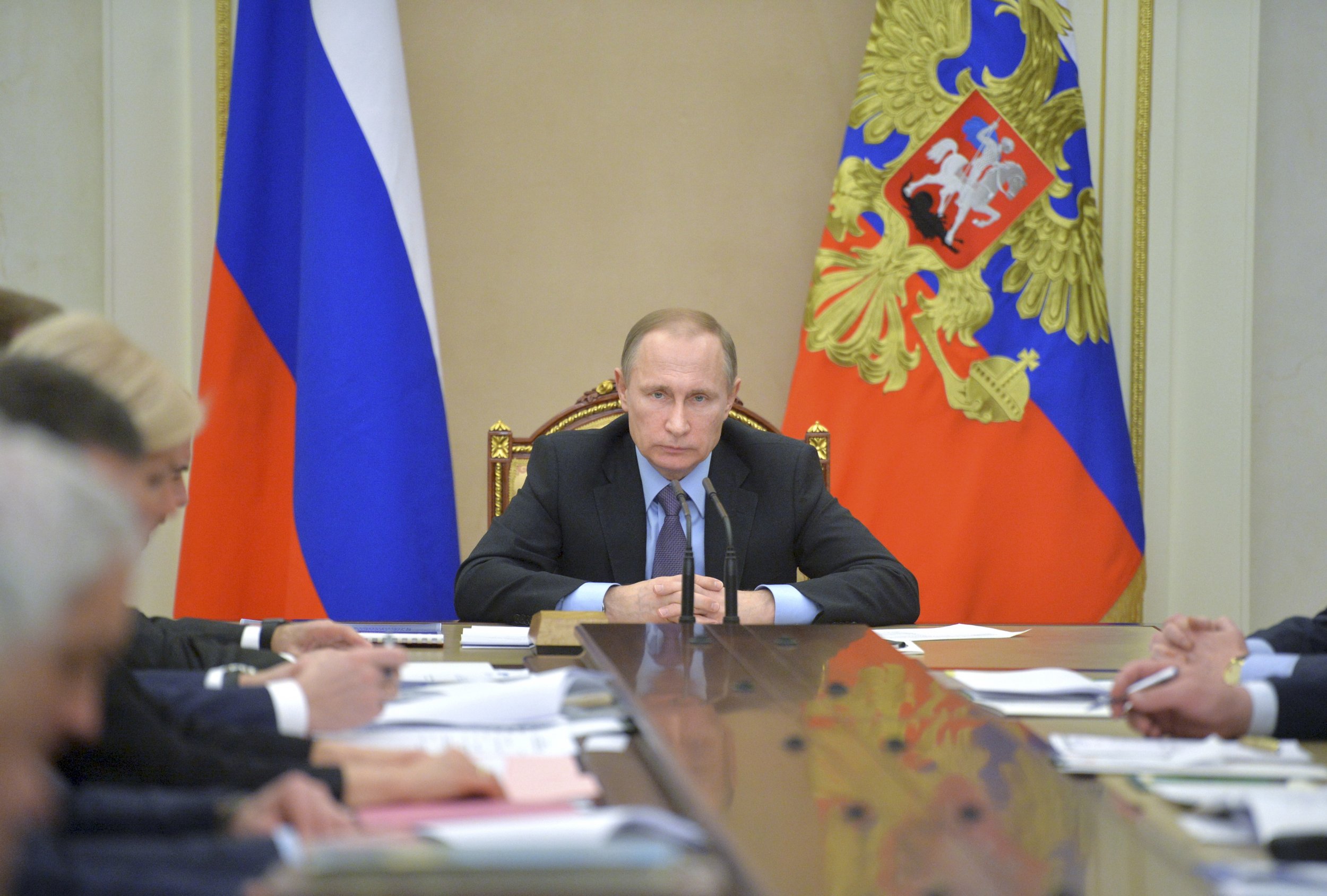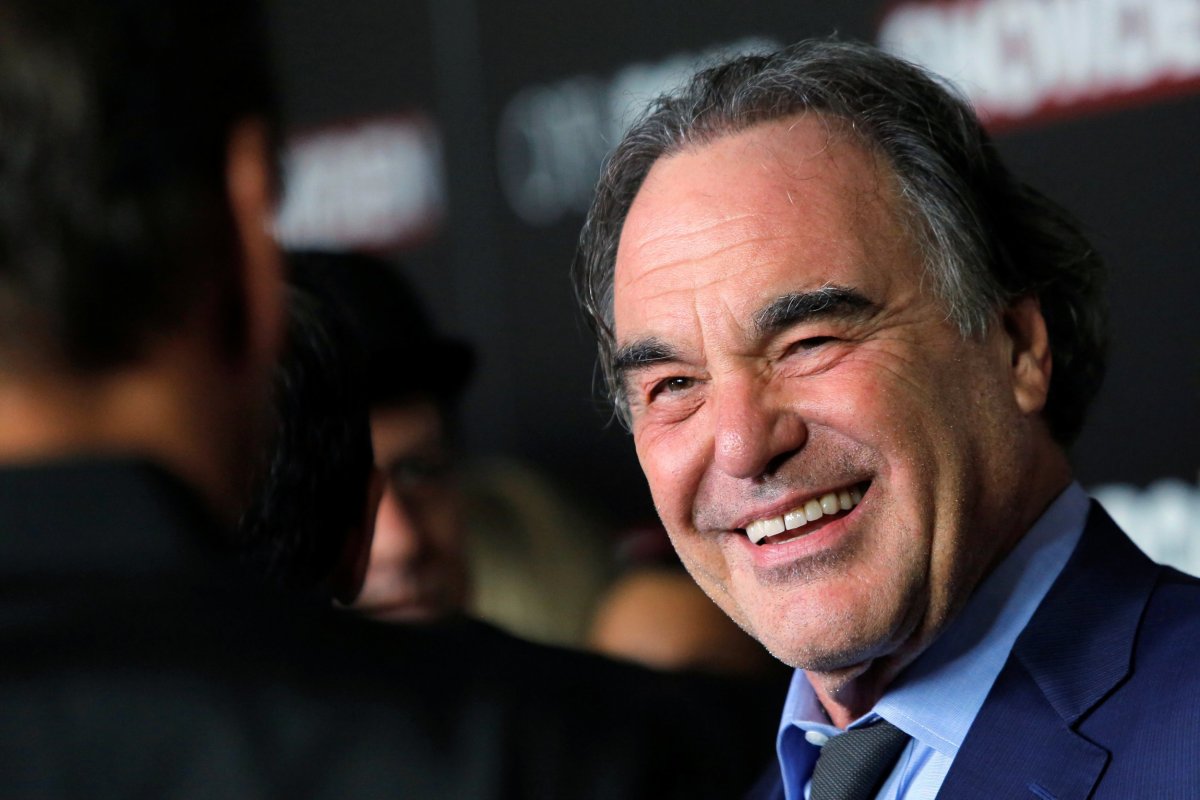
U.S. director Oliver Stone's interviews with Vladimir Putin, being aired over four nights, have already prompted much negative backlash against the Oscar winner. Throughout his four-hour epic, the filmmaker adopts an obtusely uncritical line of questioning intended to show U.S. viewers a different side of Putin—a human side that Stone treats as revelation.
In a cagey, awkward and ultimately exasperating appearance on The Late Show with Stephen Colbert, Stone underscored what he saw as Putin's personal courtesy: Stone "never heard him bad-mouth anybody;" "he called [the U.S.] 'our partners.' " The conflict in Ukraine, the poor state of LGBT rights in Russia and the marginalization of genuine opposition are all explained on Putin's terms.
Stone's intoxication with the impressive access he was granted subdues the sensible impulse to suspect that an experienced and sharp politician (and former spy) may not volunteer to be wholly earnest in front a foreigner with a running camera. Stone seldom pushes Putin in the opposite direction. With any analytical expectations out the window, the film can entertain.
Related: If you have a question for Putin, the Kremlin is awaiting calls
The pair's tour through Putin's office embodies the farcical idea of trying to reveal something about one of the world's most powerful politicians, whose government has commanded the screens of millions for over a decade. Yet attempt it Stone did, and here's what he found.
Putin's Wallpaper in the Kremlin is the Kremlin
As Putin directs Stone through his office in the heart of Moscow, he is, as Stone describes him, courteous. He has no reason not to be—he is in his element. Putin's Kremlin office has regularly been on screen in Russia—it is the Russian political version of limbo, where careers are sunk or forcefully propelled forward as millions are invited to watch. The place you might expect to find insights into the leader's curious practices has long been groomed for the screen.
As the camera pans slowly across Putin's inornate, borderline-pedestrian desk with tense violin music queued in the background, it highlights the president's characteristically impersonal touch. The background on Putin's computer at the Kremlin is the clock tower of the Kremlin.
Perhaps there are reasons why Putin's computer was on, running no programs as he walked into his empty office alongside Stone. It is not entirely unusual for company computers to bear benign or corporate wallpapers rather than family photos or personal pictures. Putin's desk instead serves to underline the intense privacy he has exercised in his 17 years in power—any details about his daughters, his grandchildren or his love life since his 2013 divorce are a realm of speculation. This line of privacy holds throughout the documentary. The humanity Stone's lens captures in Putin seldom goes beyond the one that is now virtually inescapable on Russian state airwaves.
"This is My Father"
The pair head into a side room from Putin's office, where there are private belongings, including a silver icon of the Virgin Mary and a large hanging Jesus. Putin's proclamations to the Orthodox faith have increased as his social policy has grown more conservative, as has his support base.
"This is my father. In Sevastopol, in Crimea," Putin, pointing to a portrait, tells Stone in English—a rare occurrence, especially in recent years, when courting the political mainstream in the West has become a much more thankless exercise for Russian officials than at the turn of the millennium.

The large framed picture of Vladimir Putin Sr. is perhaps the most personal item in the room, and even it has political cache. Putin's father, a World War II veteran, is a common denominator between the Russian leader and his people, the vast majority of whom descend from a generation devastated by the conflict. The portrait's setting—Crimea—is perhaps even more symbolic for Putin's presidency. His annexation of the Ukrainian territory in 2014 was one of his most popular moves in Russia, and one of the least popular overseas.
"That's why you fought for it," Stone jokes. Putin laughs it off with a simple "No." The fact that Putin has repeatedly claimed in front of the West that local, not Russian troops, took control of Crimea to hold a referendum on joining Russia, does not merit a follow-up question. Nor does the fact Putin has since admitted that Russian troops took part in the annexation, and he awarded them for it. Stone's next question is actually about how Putin uses the two desks in the room opposite.
"That's My History Book"
Near the start of the tour, Putin asks his aides why footage of his infamous Munich conference speech in 2007—notable for its strong criticism of U.S. global dominance—is playing on the screen by the door. "It has been 10 years today," an aide tells him as Stone looks on. A more cynical commentator may have given a different answer—one aware that when a world leader like Putin receives a documentarian, only the things he wishes you to see will be on show. The speech incidentally focuses on a central point that Stone and Putin agree on—their aversion to NATO's enlargement. Whether intentional or not, its presence is a conversation starter favorable to Putin.
The tour ends as the pair pass Putin's desk, with a symmetrical row of Russian tabloids and a small column of books beside them. "That's mine," Stone remarks, looking at the penultimate book at the top of the pile—a copy of The Untold History of the United States. "That's great."
As with Putin's speech, the coincidence is striking. Could the host have genuinely been so interested in the thoughts of his guest, or was it placed with a hint of flattery in mind? Such a move was not beyond John F. Kennedy in his first encounter with Norman Mailer, and it was not without favorable consequence for the president. It is surely not beyond Putin.
Once past the final door, Stone chooses a concluding remark. "So three different offices...," leaving an open-ended question about the walk the two just took. Quietly, Putin gestures with his hand to guide Stone, at the same time concluding the spectacle.
Uncommon Knowledge
Newsweek is committed to challenging conventional wisdom and finding connections in the search for common ground.
Newsweek is committed to challenging conventional wisdom and finding connections in the search for common ground.
About the writer
I am a Staff Writer for Newsweek's international desk. I report on current events in Russia, the former Soviet Union ... Read more
To read how Newsweek uses AI as a newsroom tool, Click here.








